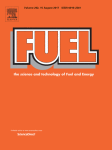 Authors(s): Eni OKO, Meihong WANG, Akeem K. OLALEYE
Authors(s): Eni OKO, Meihong WANG, Akeem K. OLALEYE
Affiliation: Process and Energy Systems Engineering Group, School of Engineering, University of Hull, HU6 7RX, UK
Reference: Oko, E., Wang, M., & Olaleye, A. K. (2015). Simplification of detailed rate-based model of post-combustion CO2capture for full chain CCS integration studies. Fuel, 142, 87–93.
Abstract: “As post-combustion CO2 capture (PCC) technology nears commercialisation, it has become necessary for the full carbon capture and storage (CCS) chain to be studied for better understanding of its dynamic characteristics. Model-based approach is one option for economically and safely reaching this objective. However, there is need to ensure that such models are reasonably simple to avoid the requirement for high computational time when carrying out such study. In this paper, a simplification approach for a detailed rate-based model of post-combustion CO2 capture with solvents (rate-based mass transfer and reactions assumed to be at equilibrium) is presented. The simplified model can be used in model based control and/or full chain CCS simulation studies. With this approach, we demonstrated significant reduction in CPU time (up to 60%) with reasonable model accuracy retained in comparison with the detailed model.”
DOI: 10.1016/j.fuel.2014.10.083
Comments: the authors simplify a detailed model developed in gPROMS and where the thermodynamic properties are obtained from Aspen Properties using the CAPE-OPEN thermodynamic socket implemented by gPROMS. In order to improve the CPU performance of the overall model, the authors apply a strategy to reduce the number of calls to Aspen Properties since these calls, while necessary, represent an important share of the total CPU.
